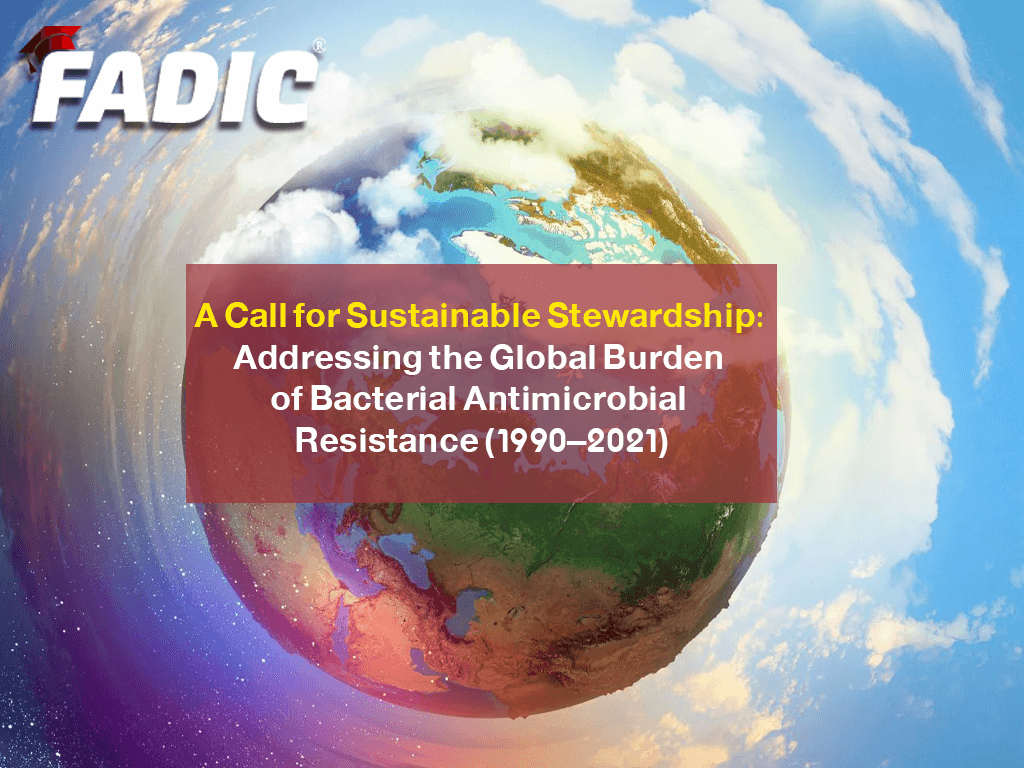An Urgent Call for Sustainable Stewardship: Confronting the Global Burden of Bacterial Antimicrobial Resistance with Forecasts to 2050
Published in Microbiology, Protocols & Methods, and Pharmacy & Pharmacology

In response to antimicrobial resistance, it is urgent to implement antimicrobial stewardship to stop its spread. AMR cannot be addressed without preserving the effectiveness of antibiotics, which are crucial for saving lives. Antimicrobial resistance is an escalating global threat that demands immediate and sustained action. The recent study by the GBD 2021 Antimicrobial Resistance Collaborators, published in The Lancet, provides a comprehensive assessment of the global burden of AMR from 1990 to 2021, with forecasts extending to 2050.1
One key finding is that AMR-related mortality among individuals aged 70 and older more than doubled between 1990 and 2021, likely due to multiple comorbidities. This alarming trend aligns with UK data showing over 70% of patients over 65 started antibiotics upon hospital admission, highlighting the increased impact of AMR on the elderly.2 These findings emphasize the critical importance of implementing sustainable antimicrobial stewardship initiatives.
Rising carbapenem resistance in Gram-negative bacteria increases deaths, highlighting an urgent need for action. Adhering to antibiotic safety measures—ensuring the "five rights" of antibiotic use: the right patient, right drug, right dose, right route, and right time—is essential.3 Following WHO's (Access, Watch, and Reserve) AWaRe classification enhances safe prescribing practices.4 Vigilance in antimicrobial stewardship is vital to combat resistance and safeguard patient health on a global scale.4
Employing novel strategies in AMR and AMS research fosters creative, multidisciplinary solutions to this complex issue.5 In low- and middle-income countries, where bacterial infections and AMR are especially high, effective AMS is crucial to prevent hundreds of thousands of AMR-related deaths annually.2
The Lancet study's reliance on historical data, which varies in quality and completeness across regions and time periods, limits the precision of its estimates. It also doesn't account for unforeseen factors, such as the emergence of new AMR superbugs or changes in antibiotic use, potentially leading to an underestimation of future AMR burden. Continuous surveillance, sustainable stewardship, and adaptable strategies are essential to address these unpredictable variables effectively.
A Call for Immediate Action
The escalating burden of antimicrobial resistance demands urgent global action on antibiotic stewardship, drug development, and equitable access to treatments. Policymakers must meet AMR reduction targets for 2030 and beyond. A sustainable approach is essential, emphasizing age-specific trends—particularly rising mortality among the elderly—and combating carbapenem resistance. Global collaboration, informed by recent research and COVID-19 lessons, is crucial for developing resilient antimicrobial stewardship strategies. By uniting efforts and embracing innovation, we can confront this AMR threat and save lives.

References
- GBD 2021 Antimicrobial Resistance Collaborators. Global burden of bacterial antimicrobial resistance 1990–2021: a systematic analysis with forecasts to 2050 [Internet]. The Lancet. 2024. Available from: https://www.thelancet.com/journals/lancet/article/PIIS0140-6736(24)01867-1/fulltext.
- Abdelsalam Elshenawy R, Umaru N, Aslanpour Z. Impact of COVID-19 on “Start Smart, Then Focus” Antimicrobial Stewardship at One NHS Foundation Trust in England Prior to and during the Pandemic. COVID [Internet]. 2024 Jan 1;4(1):102–16. Available from: https://www.mdpi.com/2673-8112/4/1/10.
- Elshenawy RA, Umaru N, Aslanpour Z. An Evaluation of the Five Rights Antibiotic Safety Before and During COVID-19 at an NHS Foundation Trust in the United Kingdom. Journal of Global Antimicrobial Resistance [Internet]. 2024 Jan 3; Available from: https://www.sciencedirect.com/science/article/pii/S2213716523002369?via%3Dihub.
- Abdelsalam Elshenawy R. WHO AWaRe classification for antibiotic stewardship: tackling antimicrobial resistance – a descriptive study from an English NHS Foundation Trust prior to and during the COVID-19 pandemic [Internet]. Frontiers Microbiology. 2023. Available from: https://www.frontiersin.org/journals/microbiology/articles/10.3389/fmicb.2023.1298858/full.
- Rasha Abdelsalam Elshenawy, Nkiruka Umaru, Aslanpour Z. Novel survey distribution methods: impact on antimicrobial resistance research outcomes. JAC-antimicrobial resistance [Internet]. 2024 Mar 5;6(2). Available from: https://academic.oup.com/jacamr/article/6/2/dlae055/7656711.





Please sign in or register for FREE
If you are a registered user on Research Communities by Springer Nature, please sign in